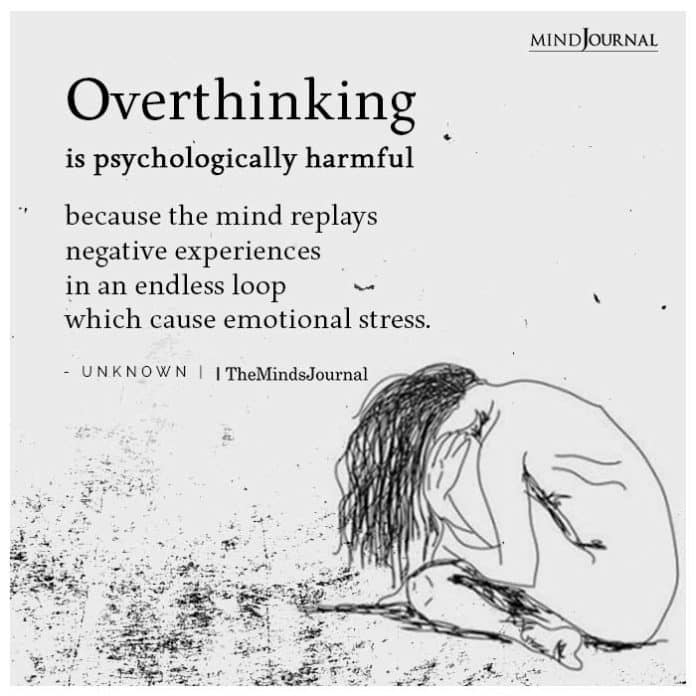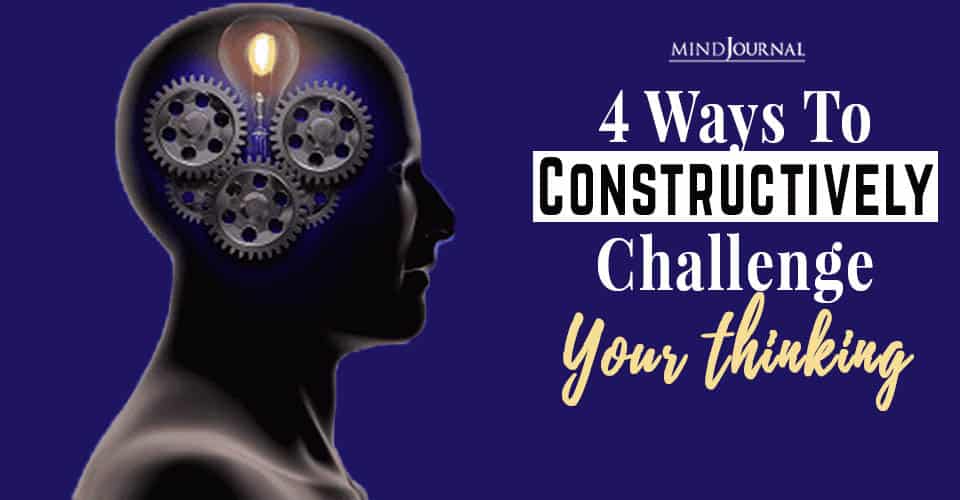Are the stories you tell yourself about why things are happening, and what might happen next, stressing you out and wearing you down? We all have that little voice that worries away inside our heads in an effort to keep us alert and safe. But let’s face it: Sometimes, like an overprotective parent, it can hold us back and weigh us down. It’s time to constructively challenge your thinking.
How do we invest in the stories that serve us best whilst ensuring we are not deluding ourselves? How do we constructively challenge our thinking and improve our sense of well-being?
“The truth is that if you’re under a lot of stress or experiencing difficulties, how you think about a particular situation may not always be very helpful,” says Dr. Judith Beck, a clinical professor of psychology at the University of Pennsylvania and the president of the Beck Institute for Cognitive Behavior Therapy whom we interviewed her recently.
“Sometimes, your thinking can be inaccurate, or you can get so caught up in your thoughts that it becomes an unhealthy cognitive cycle of either continual self-criticism, obsessive thinking, or depressive rumination.”

Beck went on to explain that how you view a situation affects how you feel. It’s not the situation itself that directly leads to your reaction—emotional, behavioural, or physiological; it’s your perception of the situation and, more specifically, it’s the thoughts you have when you’re in that situation or when you’re thinking about it.
Once you learn to monitor your moods and your behavior, however, if you notice that there’s been a change for the worst, you can ask yourself,
“What was just going through my mind?”
And once you identify your thoughts, you can then evaluate and respond to your thinking by asking questions such as, “What is the evidence that this thought is true or not true? Is there another way of looking at this? If I had a friend in this situation and they had this thought, what would I tell them?”
This is the basis of cognitive behavioral therapy (CBT).
More than 2,000 outcome studies have found that CBT is an effective treatment for a range of psychological illnesses, conditions, and issues. Increasingly, it is also used in many different situations to improve health and well-being. It can help you figure out what you most want from life and move you towards achieving that vision.
Read What Is CBT And How Does It Work?
For example, you can increase your sense of well-being and align your goals with your values by asking yourself, “What’s really important to me in my life? What are my core values? How do I want to be?” Then, identify the small steps that can move you toward these goals.
And if you encounter obstacles or lose motivation along the way due to distorted thinking, you can identify your thoughts and evaluate your responses by using CBT to look for evidence of what is true (or not true) and talk to yourself like a wise and kind friend.
Here are some other approaches Beck suggests we try to constructively challenge our thinking when it is not feeling helpful:
1. Imagine the most likely scenario.
To help you manage anxiety about uncertainties, first ask yourself, “What’s the worst that I’m afraid could happen? And if that happens, how would I cope?” For example, the worst that might happen is you could lose your job, your savings and benefits, and end up homeless with your possessions in ragged shopping bags.
But you might cope by getting a live-in job that would give you shelter, food, and some income. In this way, you can take control of the image and change it in a way to feel better.
Now consider what’s the best that could happen? And usually, reality falls somewhere in between, so imagine what might happen and how you’d cope with a scenario that is between the worst and best possible outcomes.
2. Take control over the things that you can control.
While there’s a lot that you can’t control, you can exert control over things such as your schedule and your habits. This way to constructively challenge your thinking will improve your sense of well being and help you better deal with problems.
For example, make a list every day of things that you need to get done. Include activities you need to balance your life, such as connecting with others, doing fun things, taking care of your health, or taking attention off yourself and finding ways to help other people such as friends, family, or those less fortunate than you.
Read Why You Should Let Go The Control Freak Inside You
3. Accept your experiences.
Struggling against your negative emotions can just put way more attention on them and make you feel much worse. Instead, try telling yourself, “I don’t like feeling this anxiety or this degree of uncertainty, but it’s natural to feel this way at the moment, and probably most people are feeling something like this.
Meanwhile, I don’t have to focus on this feeling, and I can focus on taking action based on my values, or getting involved in things that are really important to me.”

4. Use your body cues.
When you notice an uncomfortable physiological reaction or you’re physically feeling out of sorts, it can be important to figure out what this might signal. If you can rule out that exercise or illness is causing your aches and pains, then it can be important to try to figure out what’s really bothering you.
Try doing this by imagining some different hypothetical fixes for a problem that could be on your mind.
For example, you might wonder if it’s about your workload, so you could imagine that you get an email that says you no longer have to meet a number of your responsibilities or that a deadline is being moved to a year from now.
Read 10 Body Language Cues That Can Instantly Give You Away
Then, when you’ve hypothetically fixed the problem, consider how much better this makes your body feel. If you feel a lot of relief, then that’s probably what’s been on your mind.
But if you don’t feel much better, then the scenario you imagined probably wasn’t the major issue, and you need to keep considering.
How can you use CBT to break down the thoughts that undermine your well-being at work?
Let us know in comments.
To discover more evidence-based practices for helping people to thrive at work, check out the Making Positive Psychology Work Podcast.
Written by: Michelle McQuaid
Originally appeared on Psychology Today
Republished with permission










Leave a Reply